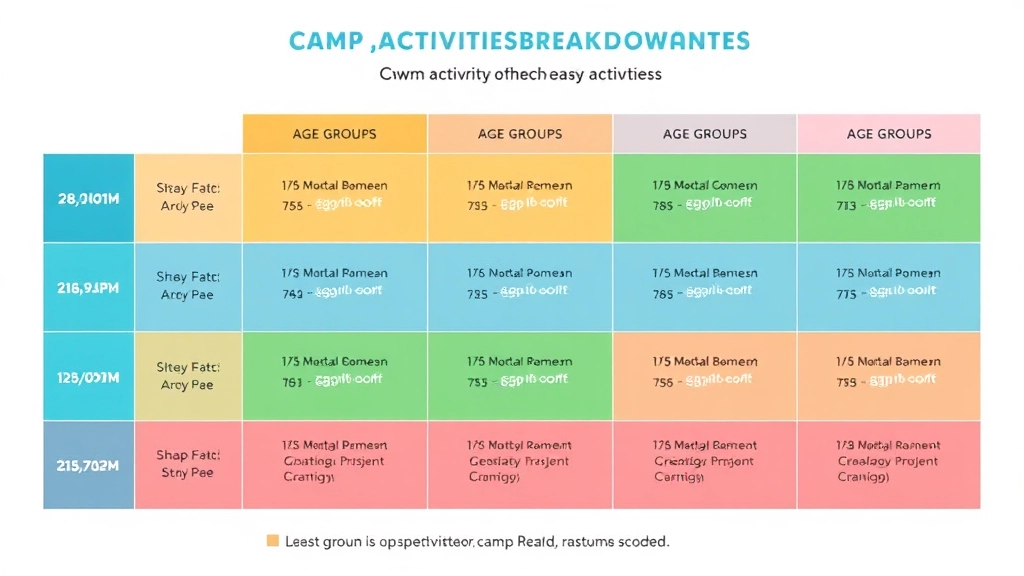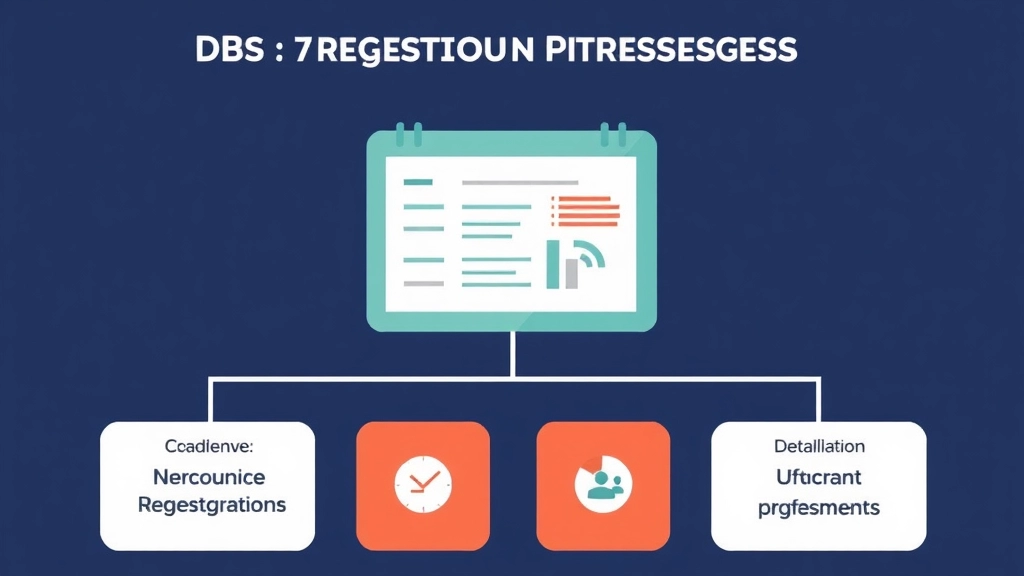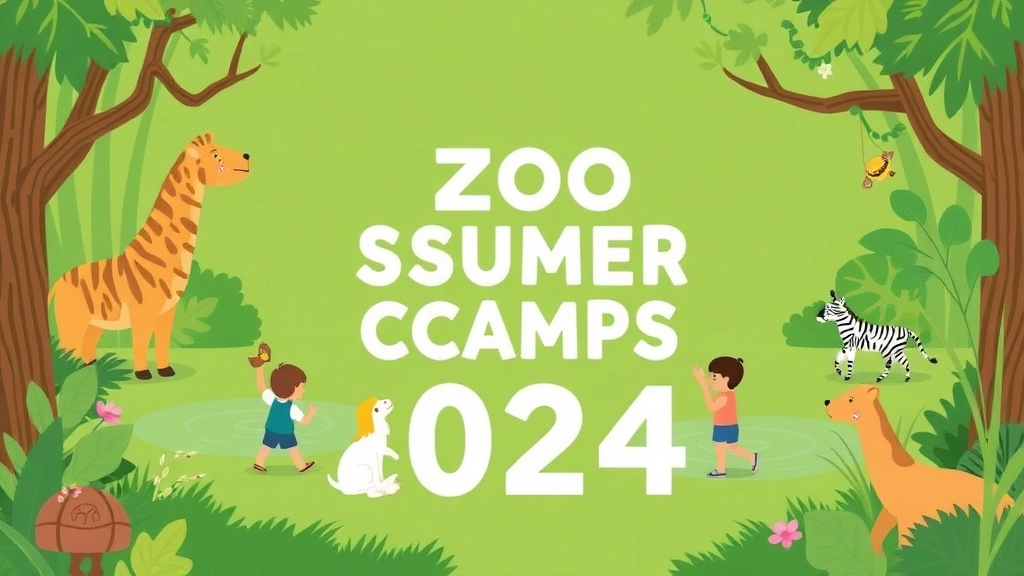Zoo Summer Camps 2024
Looking for an exciting and educational way to keep your kids engaged this summer? Zoo Summer Camps 2024 offer a unique blend of fun and learning, perfect for young animal enthusiasts. These camps, available at popular zoos across the U.S., provide hands-on experiences with wildlife, fostering a love for nature and conservation. From interactive animal encounters to creative art projects, there’s something for every age group to enjoy.
What to Expect
Wondering what to expect? Zoo Summer Camps 2024 feature a variety of activities tailored to different age groups, ensuring that every child has a memorable experience. Campers can dive into animal conservation efforts, participate in educational games, and even create art inspired by their favourite animals.
Don’t Miss Out!
Don’t miss out on this fantastic opportunity—learn about registration processes, key deadlines, and special discounts for zoo members to secure your spot today!
Popular Zoo Summer Camps Across the U.S.
Ever wondered if there’s a place where your kids can have a blast, learn about animals, and make new friends all at the same time? Well, you’re in luck. Zoo summer camps across the U.S. are the perfect solution. They’re not just about watching animals; they’re about immersive, hands-on experiences that your kids will rave about for months. Let’s dive into some of the top picks.
San Diego Zoo Summer Camp
Why it’s a hit:
- Variety of Camps: From ‘Zoo Explorers’ to ‘Wildlife Rangers’, there’s something for every age group.
- Exclusive Access: Kids get behind-the-scenes tours, meeting zookeepers, and even feeding some animals.
- Location Perks: It’s San Diego! Parents can enjoy the beach while kids are at camp.
Bronx Zoo Summer Camp
Standout Features:
- Urban Jungle: Located in the heart of New York City, this camp offers a unique blend of city life and wildlife.
- Interactive Learning: Activities include scavenger hunts, animal presentations, and conservation projects.
- Diverse Wildlife: Home to over 6,000 animals, your child will never get bored.
Woodland Park Zoo Camp, Seattle
What Makes It Special:
- Eco-Focused: Emphasis on sustainability and conservation, teaching kids to be eco-warriors.
- Hands-On Activities: From crafting enrichment toys for animals to learning about habitats, it’s all about engagement.
- Rain or Shine: Seattle’s weather is no deterrent; the camp is designed to be fun regardless of the forecast.
Atlanta Zoo Camp
Why Parents Love It:
- Flexible Scheduling: Options for one-day, week-long, or even month-long camps.
- Educational Fun: Focus on STEM activities related to animal care and conservation.
- Family-Friendly: Discounts for zoo members and sibling sign-ups.
San Francisco Zoo Camp
Key Highlights:
- Art and Animals: Unique blend of art projects and animal studies.
- Local Wildlife: Focus on native Californian species and their conservation.
- Community Feel: Smaller groups for a more personalised experience.
Lincoln Park Zoo Camp, Chicago
Why Kids Keep Coming Back:
- Interactive Exhibits: Kids can touch, feel, and even help care for some of the animals.
- City Oasis: Located in the middle of Chicago, it’s a green escape in an urban setting.
- Year-Round Learning: Opportunities for continued education even after summer ends.
For more information on similar experiences, check out the Cincinnati Zoo Summer Camp and explore Top Summer Camps in Winter Garden for 2024.
Age Groups and Camp Activities Breakdown

Ever wondered if your kid is too young or too old for a zoo camp?
Yeah, I get it.
Finding the right fit can be a headache.
Let’s break it down.
Age Groups
Toddlers (Ages 3-5)
- Activities:
- Storytime with animals
- Simple crafts
- Gentle animal interactions
- Why It’s Great:
- Introduces them to the animal world
- Develops motor skills
- Social interaction in a fun setting
Kids (Ages 6-8)
- Activities:
- Scavenger hunts
- Basic animal care
- Nature walks
- Why It’s Great:
- Encourages curiosity
- Builds teamwork
- Hands-on learning
Pre-teens (Ages 9-12)
- Activities:
- Behind-the-scenes tours
- Animal feeding
- Conservation projects
- Why It’s Great:
- Deeper understanding of animal care
- Leadership opportunities
- Real-world science applications
Teens (Ages 13-17)
- Activities:
- Advanced animal care
- Volunteer opportunities
- Career talks with zookeepers
- Why It’s Great:
- Prepares for future careers
- Builds a sense of responsibility
- Networking with professionals
Real Talk
“Is my 7-year-old ready for a scavenger hunt?”
Absolutely.
These camps are designed to match your child’s age and abilities.
Examples
- Toddlers:
Picture this: Little Emma feeding a baby goat and beaming with pride.
- Kids:
Imagine Jack, 8, leading his team in a scavenger hunt, finding clues, and learning about animals.
- Pre-teens:
Think of Sarah, 11, getting a behind-the-scenes tour and talking to a zookeeper about her favourite tiger.
- Teens:
Visualise Alex, 15, volunteering at the reptile house, learning about animal habitats, and planning a career in zoology.
Keep It Simple
- Bullet Points:
- Easy to read
- Quick to digest
- Perfect for busy parents
- Tables:
- Great for comparing age groups and activities at a glance
Unique Learning Experiences: Animal Conservation and Art
Ever wondered how your kid can have a blast while learning about animal conservation and art at a zoo summer camp? It’s not just about seeing animals; it’s about diving deep into their world. And trust me, the kids love it.
Why Animal Conservation Matters
We all know that animal conservation is a big deal. But how do you make it exciting for kids? Here’s the secret sauce:
- Hands-on Activities: Kids get to participate in real conservation efforts. Think feeding schedules, habitat clean-ups, and even tracking animal behaviours.
- Expert Talks: Imagine your child listening to a zookeeper explain how they rescued a tiger. It’s like a live-action documentary but way cooler.
- Interactive Workshops: These aren’t your typical lectures. Kids might build birdhouses, create wildlife-friendly gardens, or even simulate animal rescues.
Art Meets Wildlife
Now, let’s talk about the art part. You might be thinking, “How do you mix art with animals?” Here’s how:
- Animal Sketching Classes: Kids get to sit near enclosures and sketch their favourite animals. It’s not just drawing; it’s observing and capturing the essence of wildlife.
- Craft Workshops: From making clay models of animals to creating dioramas of habitats, these activities are designed to spark creativity.
- Photography Sessions: Some camps offer basic photography lessons where kids can learn to capture the perfect shot of a lion or a peacock.
Real Stories, Real Impact
Let me share a story. Last summer, my niece attended a zoo camp focused on animal conservation. She came back talking non-stop about how she helped prepare food for the giraffes and learned about their endangered status. She even made a poster about it and hung it in her room. That’s the kind of impact we’re talking about.
Why This Matters
- Builds Awareness: Kids learn about endangered species and what they can do to help.
- Encourages Creativity: Art projects allow kids to express what they’ve learned in a fun and engaging way.
- Hands-On Learning: Real-world activities make the lessons stick.
So, if you’re looking for a summer camp that offers unique learning experiences in animal conservation and art, a zoo camp is a no-brainer. It’s not just educational; it’s transformative. For more information on how to apply and qualify for summer camp vouchers, visit our Summer Camp Vouchers page. Also, check out our Affordable Summer Camp Assistance guide to see how you can make this enriching experience accessible for your family.
Registration Processes and Key Deadlines

Ever feel like summer camp registration is a race against time?
Yeah, me too.
Especially when it comes to popular zoo summer camps across the U.S.
Let’s break it down so you can snag a spot without breaking a sweat.
How to Register
First things first: registration.
Most zoos offer online registration.
Super convenient, right?
Here’s the lowdown on what you’ll typically need:
- Create an Account: Most zoos will ask you to set up an account on their website.
- Fill Out Forms: Basic info about your child, emergency contacts, medical details.
- Choose Your Camp: Select the camp sessions and dates that work for you.
- Payment: Be ready with your credit card. Some zoos offer payment plans.
Key Deadlines
Now, let’s talk deadlines.
Miss them, and you’re out of luck.
Here’s what you need to know:
- Early Bird Registration: Usually opens in January or February. Snag a discount if you’re quick.
- Regular Registration: March through May. Spots fill up fast, so don’t dawdle.
- Late Registration: June onwards, if there are any spots left. Higher fees, fewer choices.
Pro Tips
Worried about missing out?
Here are some tips to keep you ahead of the game:
- Set Reminders: Mark your calendar with registration dates.
- Join Mailing Lists: Zoos often send out reminders and updates.
- Follow on Social Media: Real-time updates and sometimes even flash discounts.
Real Talk
I remember last summer, I almost missed the deadline for my kid’s favourite zoo camp.
Talk about a close call!
Set those reminders, folks.
These camps are worth it.
Pricing Options and Discounts for Zoo Members
Alright, let’s get real. One of the biggest questions on your mind when thinking about zoo summer camps is probably, “How much is this going to cost me?” Trust me, I get it. Pricing can be a dealbreaker. So, let’s break it down and see if we can make sense of it all.
Standard Pricing Options
First off, zoo camps usually have a standard pricing structure. Here’s what you can typically expect:
- Weekly Rates: Most camps charge by the week, and prices can range from £150 to £400, depending on the zoo and the type of camp.
- Daily Rates: Some zoos offer daily rates if you’re not looking to commit to a full week. These can be around £30 to £80 per day.
- Half-Day vs Full-Day: You might find options for half-day camps, which are generally cheaper. Full-day camps will obviously cost more but offer more activities and learning opportunities.
Discounts for Zoo Members
Now, here’s where it gets interesting. If you’re a zoo member, you can often snag some pretty sweet discounts. Here’s how it usually works:
- Percentage Discounts: Many zoos offer a 10% to 20% discount for their members. This can add up to significant savings, especially if you have multiple kids attending the camp.
- Early Bird Specials: Some zoos give additional discounts if you register early. This is usually a limited-time offer, so keep an eye out for those deadlines.
- Multi-Child Discounts: Got more than one kid? Some zoos offer discounts if you enrol multiple children. It’s a win-win.
Real-Life Example
Let me give you a quick example. Last summer, I signed up my two kids for a week-long camp at our local zoo. As a member, I got a 15% discount, which saved me about £60. Plus, I registered early and snagged an extra £20 off. All in all, I saved £80 just by being a bit savvy about it.
How to Maximise Savings
Want to stretch your pound even further? Here are some tips:
- Check for Bundle Deals: Some zoos offer bundled packages that include camp, zoo admission, and even merchandise.
- Use Membership Perks: If your zoo membership comes with guest passes, use those for additional savings.
- Stay Updated: Keep an eye on the zoo’s website or newsletter for special promotions and discounts.
Key Takeaway
In the end, the cost of zoo summer camps can vary, but being a zoo member can offer substantial savings. Whether it’s through percentage discounts, early bird specials, or multi-child discounts, there are plenty of ways to make it more affordable. So, if you’re planning to sign up your kids, do yourself a favour and look into membership benefits. Trust me, your wallet will thank you.
For more tips on saving money and finding the best camps, check out our guide on saving on summer camps with Dependent Care FSA. And if you’re looking for a variety of camp options, don’t miss our list of diverse UT summer camps for all interests.
Safety Protocols and Special Needs Accommodations

Worried about safety at zoo summer camps? Or perhaps you’re wondering how they cater to kids with special needs?
Let’s break it down.
Keeping It Safe
Safety is the top priority, right? Here’s how zoos keep your kids safe:
- Trained Staff: Every camp counsellor knows their stuff. They’re trained in first aid and CPR. They know how to handle emergencies.
- Controlled Environment: Camps are held in secure areas. No wandering off into the lion’s den!
- Health Checks: Daily health screenings are a thing. No sick kids allowed, period.
- Emergency Plans: They’ve got plans for everything. Fires, storms, you name it.
Special Needs? No Problem
Got a kid with special needs? Zoos are on it. Here’s what they offer:
- Personalised Care: One-on-one support if needed. They’ll make sure your kid gets the attention they need.
- Accessible Facilities: Wheelchair ramps, sensory-friendly spaces, the lot.
- Tailored Activities: Activities can be adapted. They make sure every kid can join in on the fun.
Real Stories, Real Peace of Mind
One parent shared how the camp staff went above and beyond for their autistic child. They created a quiet space for breaks and had a dedicated counsellor. The kid had a blast!
What You Need to Do
- Inform Early: Let the camp know about any special needs when you register. The earlier, the better.
- Discuss Details: Have a chat with the staff. Make sure they understand your child’s needs.
- Pack Essentials: Send any necessary items with your child. Meds, special snacks, whatever they need.
Extended Care and Additional Fun Activities
Ever worried about what to do with your kids after zoo camp ends for the day?
I get it.
You don’t want them just sitting around, right?
Here’s the good news: many popular zoo summer camps offer extended care options.
What Is Extended Care?
Extended care is basically extra time at the zoo.
It’s perfect for parents who have to work late or can’t pick up their kids right at the end of the camp day.
Think of it as a way to keep the fun going.
What Happens During Extended Care?
Let’s break it down.
We’re talking about:
- Games and Crafts: More hands-on activities.
- Animal Encounters: Extra time with the animals.
- Storytime: Engaging stories about wildlife.
- Outdoor Play: Because kids need to burn off that energy.
Why Choose Extended Care?
You want peace of mind knowing your kids are safe and having fun.
Plus, it beats them being glued to a screen at home.
Additional Fun Activities
Now, let’s talk about the extra fun stuff.
These camps aren’t just about learning.
They’re about making memories.
Here are some cool activities your kids might get to do:
- Behind-the-Scenes Tours: See how the zoo operates.
- Feeding Sessions: Help feed the animals.
- Animal-Themed Games: Think scavenger hunts and trivia.
- Creative Projects: Art and crafts inspired by wildlife.
Real Stories, Real Fun
I remember one parent telling me how their kid got to feed a giraffe during extended care.
The kid couldn’t stop talking about it for weeks.
That’s the kind of stuff that sticks with them.
Extended care is the keyword here, and it’s worth every penny.
For more tips on making summer camp stress-free, check out our Top 10 Summer Camp Hacks. If you’re looking for fun and engaging activities, don’t miss our guide on Top Summer Camp Fun Activities for Kids.
FAQs about Zoo Summer Camps 2024
What age groups are the zoo summer camps designed for?
Zoo summer camps cater to various age groups, including Toddlers (Ages 3-5), Kids (Ages 6-8), Pre-teens (Ages 9-12), and Teens (Ages 13-17). Each age group has tailored activities that suit their developmental stage and interests.
What types of activities do the camps offer for different age groups?
The activities vary by age group:
- Toddlers: Storytime with animals, simple crafts, gentle animal interactions.
- Kids: Scavenger hunts, basic animal care, nature walks.
- Pre-teens: Behind-the-scenes tours, animal feeding, conservation projects.
- Teens: Advanced animal care, volunteer opportunities, career talks with zookeepers.
How do I register my child for a zoo summer camp?
Most zoos offer online registration. You’ll need to create an account, fill out forms with basic info about your child, choose your camp sessions, and complete the payment process. Some zoos offer payment plans.
When should I register for the zoo summer camps?
Key deadlines include:
- Early Bird Registration: January or February, often with a discount.
- Regular Registration: March through May, but spots fill up quickly.
- Late Registration: June onwards, if any spots are left, usually with higher fees.
What safety protocols are in place at the zoo summer camps?
Safety measures include:
- Trained Staff: Counsellors are trained in first aid and CPR.
- Controlled Environment: Camps are held in secure areas.
- Health Checks: Daily health screenings are conducted.
- Emergency Plans: Comprehensive plans for various emergencies.
How do the camps accommodate children with special needs?
Zoos offer personalized care, accessible facilities, and tailored activities. It’s important to inform the camp early about any special needs and discuss details with the staff to ensure proper accommodations.
Are there any tips to ensure I don’t miss the registration deadlines?
To stay ahead:
- Set Reminders: Mark your calendar with registration dates.
- Join Mailing Lists: Zoos often send out reminders and updates.
- Follow on Social Media: Get real-time updates and sometimes even flash discounts.
What should I do if my child has specific medical or dietary needs?
Inform the camp during registration about any medical or dietary needs. Discuss these needs with the staff and ensure you pack any necessary items, such as medications or special snacks, for your child.
References
-
Milwaukee County Zoo – Zoo Camps
-
Oregon Zoo – ZooCamp
-
San Diego Zoo – Zoo Camps

